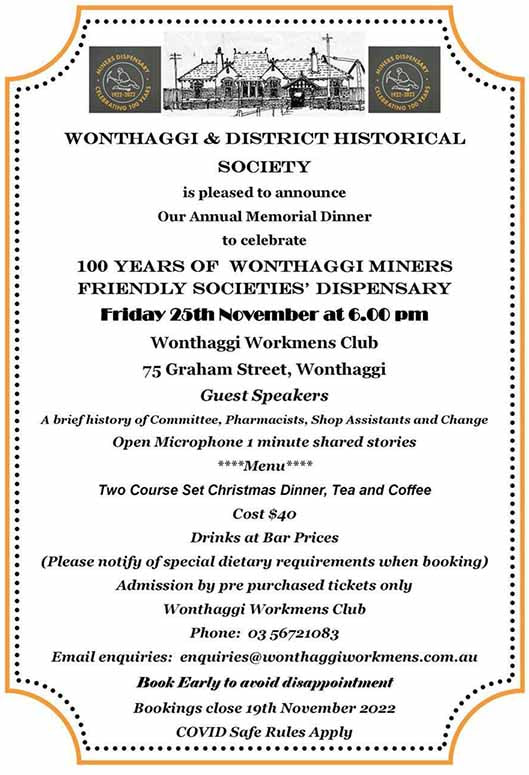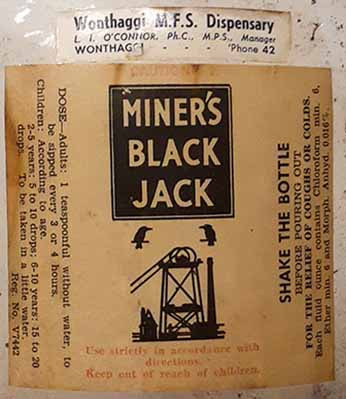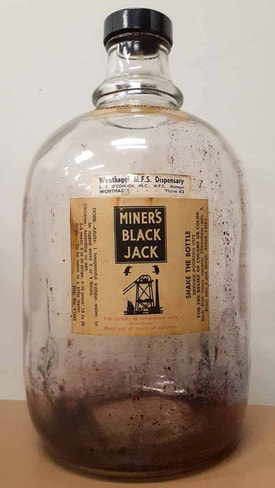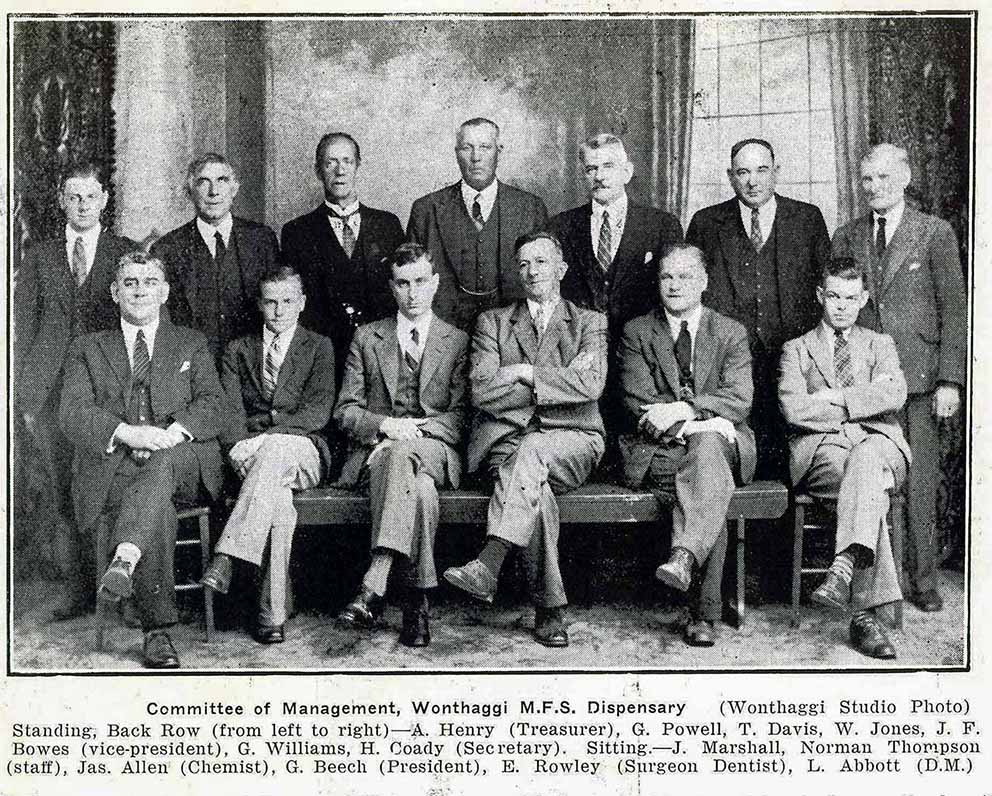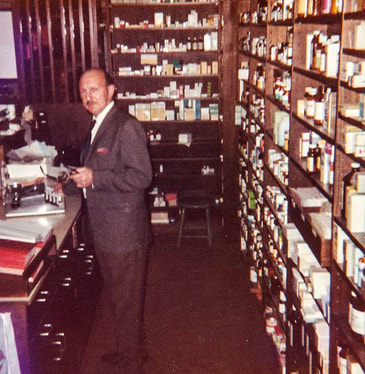 Leo O’Connor, dispensary manager from 1953 to 1975. “The Dispensary” turns 100 this month.
Leo O’Connor, dispensary manager from 1953 to 1975. “The Dispensary” turns 100 this month. IN November 1909, after the Victorian government established the State Coal Mine, and “the children of Eureka”, as Mr Alf Opie, a pioneer past Secretary of the Dispensary called them, set out to establish a welfare system based on co-operation and solidarity.
The Miners Friendly Societies Co-operative Dispensary - better known as The Dispensary" - was an integral part of this system. The Dispensary celebrates its centenary this month.
By the outbreak of World War I in 1914, the Wonthaggi community had a Medical Benefit Fund, a Hospital Benefit Fund based on the principles of democratic co-operation. All the employees of the State Coal Mine had to be members of these funds. The employees paid compulsory levies and in exchange received free medical and hospital treatment.
The Miners Friendly Societies Co-operative Dispensary - better known as The Dispensary" - was an integral part of this system. The Dispensary celebrates its centenary this month.
By the outbreak of World War I in 1914, the Wonthaggi community had a Medical Benefit Fund, a Hospital Benefit Fund based on the principles of democratic co-operation. All the employees of the State Coal Mine had to be members of these funds. The employees paid compulsory levies and in exchange received free medical and hospital treatment.
In 1915, the move to add pharmaceutical benefits to the scheme was begun. Friendly society dispensaries, based on the English models, had existed in Australia since the 1840s. They were set up by friendly societies to ensure supplies to their members of quality medicines as prescribed by doctors at affordable prices. Working class people could not afford even basic medicines, unless they were members of a friendly society.
| Due to the disruptive effects of the war, this was only achieved in 1922, when at a meeting of State Coal Mine employees, led by the Miners Union and the friendly societies in the town, the motion to establish a Miners Dispensary on the same lines as the medical and hospital funds was enthusiastically carried. With the backing of the six mining unions, it was agreed to buy an old building in Graham Street, demolish it and build the Dispensary. Funds for the building and operation of the Dispensary were raised with a weekly levy from miners’ wages. This was the way the co-operative nature of the early years of Wonthaggi operated, with the Union and its miners providing facilities and services in Wonthaggi. The Co-operative Store, the Union Theatre and the new Dispensary were all funded by the miners. Membership of friendly societies was voluntary. The Wonthaggi mining community, however, opted to make membership of the medical, hospital and dispensary schemes compulsory for all State Coal Mine mine employees. Other members of the community could also join on a voluntary basis. The Dispensary was an immediate success. The office bearers were elected by members at the Annual General Meeting, which was run on very strict democratic lines. Important decisions concerning policy and other changes were taken at the AGM or at Special Meetings convened according to the Constitution. The success of the Dispensary was such that in 1927 much-needed dental treatment was added to the benefits of members. This was the heyday of Wonthaggi. It was booming and it is estimated that around 12,000 people lived in the town and its suburbs. | Celebrating 100 years Planning for the centenary celebrations started early in 2022 with representatives of the Wonthaggi & District Historical Society, the Dispensary and community.
|
In his history of the dispensary Sam Gatto describes a popular remedy called Black Jack that was supplied to the local mining community to treat respiratory infections and other ailments. It was present in every home. The patent for the product was held by AW Griffiths, the first general manager and chemist of the dispensary who served from 1922 until the 1950s. On his retirement, he offered to sell the patent to the dispensary. This offer was declined as patent medicines were often considered untrustworthy, possibly unsafe and not profitable.
Despite the difficulties caused by the Great Depression and World War II the Dispensary continued to function and provide medicines to its members. Pressure on the Dispensary was decreased in 1948, when the Commonwealth Pharmaceutical Benefits Scheme, which provided 140 free basic medicines for all Australians, was introduced. The Dispensary then had to adapt when, in 1960, the Australian government introduced a co-payment. In the 50s optical benefits were added for a short time.
The gradual closure of the State Coal Mine also put pressure on the Dispensary Committee and its members, who set out to adapt and prepare for the inevitable. In 1968, when the State Coal Mine ceased to be, the Miners Dispensary was ready to meet the many challenges ahead.
The gradual closure of the State Coal Mine also put pressure on the Dispensary Committee and its members, who set out to adapt and prepare for the inevitable. In 1968, when the State Coal Mine ceased to be, the Miners Dispensary was ready to meet the many challenges ahead.
This same co-operative nature still exists today, with members of the Dispensary receiving benefits in reduced costs for pharmacy, dental and other services.
The Miners Dispensary has continued to adapt and change with the times. It has moved from the original premises next door to the larger current pharmacy. It has recently been renovated and technologically updated. It is now run by a Board of Directors, on a basically honorary basis. It is still a not-for-profit entity, regularly donating to community organisations and at the service of its members and the community it has served for 100 years.
Information and photos from Sam Gatto. Sam's history of the Dispensary, "One of a Kind", is on sale at the Dispensary.
The Miners Dispensary has continued to adapt and change with the times. It has moved from the original premises next door to the larger current pharmacy. It has recently been renovated and technologically updated. It is now run by a Board of Directors, on a basically honorary basis. It is still a not-for-profit entity, regularly donating to community organisations and at the service of its members and the community it has served for 100 years.
Information and photos from Sam Gatto. Sam's history of the Dispensary, "One of a Kind", is on sale at the Dispensary.
